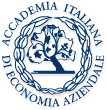Tra i soggetti più attivi nella promozione della purpose organization va segnalata la School of management del Politecnico di Milano. Due sono gli eventi organizzati recentemente...
In tema di... Marketing and Retail
The retail industry is an innovative environment, which observe the rise and adoption of many technologies in the last two decades from e-commerce to pervasive tools and technologies (such as Beacons, augmented reality and virtual reality) until the introduction of artificial intelligence in systems.
Despite that, recently, a big part of studies is focalising their attention on the metaverse.
Even if it is not a new concept (the word “metaverse” appears for the first time in 1922 in the science fiction book “Snow Crash” by Neal Stephenson), this digital environment is attracting more and more the attention of many scholars, who are interested in understanding the main advantages and disadvantages for users, retailers and brands, along with the real meaning of what it means to be immersed in this “new world”.
Thus, here are three academic contributions, which analyse the metaverse from different perspectives to offer the readers new lights of investigation.
(PAPER): Barrera, K. G., & Shah, D. (2023). Marketing in the Metaverse: Conceptual understanding, framework, and research agenda. Journal of Business Research, 155, 113420.
A hyper-connected digital universe referred to as the ‘metaverse’ bears the promise of fundamentally changing how consumers, brands, and firms will transact and interact in a seamlessly interconnected space of virtual realities. The potential of the metaverse is being accelerated by the increasing tendency of (i) consumers engaging and transacting in virtual spaces and (ii) firms investing millions of dollars in developing metaverse-related technologies. However, given the rapid evolution, there is a lack of clear understanding of the current scope of the metaverse and the consequent implications for marketing practice and research. This study integrates the findings from an extensive literature review of multiple disciplines and expert viewpoints of industry leaders to propose a definition and an organizing framework for the emergent metaverse. Subsequently, the authors discuss how metaverse-induced changes contribute to novel implications for marketing practice and propose a research agenda to guide future academic studies and marketing initiatives.
(PAPER): Yoo, K., Welden, R., Hewett, K., & Haenlein, M. (2023). The merchants of meta: A research agenda to understand the future of retailing in the metaverse. Journal of Retailing. Ahead of print.
Due to rapid technological developments, the metaverse is quickly garnering attention from all areas of retailing. With a projected market of $800 billion by 2024, the metaverse is expected to radically reshape retailing in the digital world. However, very little is known about the metaverse from a customer, retailer, or brand perspective.
This article summarizes how the metaverse has been conceptualized thus far in the literature and the popular press. The authors offer a new conceptualization of the metaverse that contains four distinct dimensions: online collaboration, high consumer immersion, unique digital assets, and digital personas.
Considering that the technologies currently used to provide high consumer immersion (e.g., augmented reality, virtual reality) and unique digital assets (e.g., blockchain technology) are not fully developed or commercialized, the authors also propose the concept of a transitory metaverse to understand the current stage of metaverse development better.
The authors conclude by providing 27 directions for future research based on a full factorial of how the metaverse dimensions amplify three customer touchpoints in the digital experience (digital economic exchange, complex social relationships, direct environment interaction) for the three main stakeholders of any retailing exchange (consumers, retailers, brands) along the entire customer journey (pre-purchase, purchase, post-purchase).
(PAPER): Dwivedi, Y. K., Hughes, L., Baabdullah, A. M., Ribeiro-Navarrete, S., Giannakis, M., Al-Debei, M. M., ... & Wamba, S. F. (2022). Metaverse beyond the hype: Multidisciplinary perspectives on emerging challenges, opportunities, and agenda for research, practice and policy. International Journal of Information Management, 66, 102542.
The metaverse has the potential to extend the physical world using augmented and virtual reality technologies allowing users to seamlessly interact within real and simulated environments using avatars and holograms. Virtual environments and immersive games (such as Second Life, Fortnite, Roblox and VRChat) have been described as antecedents of the metaverse and offer some insight into the potential socio-economic impact of a fully functional persistent cross-platform metaverse. Separating the hype and “meta…” rebranding from current reality is difficult, as “big tech” paints a picture of the transformative nature of the metaverse and how it will positively impact people in their work, leisure, and social interaction. The potential impact on the way we conduct business, interact with brands and others, and develop shared experiences is likely to be transformational as the distinct lines between physical and digital are likely to be somewhat blurred from current perceptions. However, although the technology and infrastructure do not yet exist to allow the development of new immersive virtual worlds at scale - one that our avatars could transcend across platforms, researchers are increasingly examining the transformative impact of the metaverse. Impacted sectors include marketing, education, and healthcare as well as societal effects relating to social interaction factors from widespread adoption, and issues relating to trust, privacy, bias, disinformation, application of law as well as psychological aspects linked to addiction and impact on vulnerable people. This study examines these topics in detail by combining the informed narrative and multi-perspective approach from experts with varied disciplinary backgrounds on many aspects of the metaverse and its transformational impact. The paper concludes by proposing a future research agenda that is valuable for researchers, professionals and policymakers alike.
Maggio 2023




